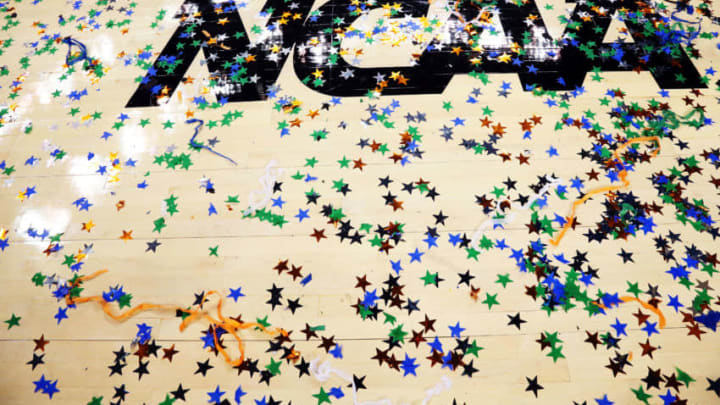Kansas basketball was recently slapped with allegations regarding major recruiting violations. Now that the NCAA seems to have opened the door to student-athletes being paid, does anything change for the Jayhawks?
The short answer is: maybe? Kansas basketball is still in hot water with the NCAA, but the circumstances have changed some. Let’s start by looking at what started this entire “student-athletes being paid” notion and see how it affects Kansas.
It all started in California earlier this year when the state passed a law that allowed student-athletes to profit from their names and likeness. The law is set to go into effect in 2023. The move essentially forced the NCAA to do something, or else. After California stood up the mighty NCAA, legislators in other states began voicing their support for a similar bill in their respective states.
So that brings us the present and this tweet that went up at about noon today:
NCAA Board of Governors starts process to enhance name, image and likeness opportunities: https://t.co/tQaLUBgton pic.twitter.com/QaSYMAUfKn
— NCAA (@NCAA) October 29, 2019
Here’s the very important part that is being missed by people who are only reading the headlines: nothing has officially changed yet.
What happened, was that the NCAA Board of Governors voted to allow student-athletes to “benefit from the use of their name, image, and likeness,” which is great. It opens the door for athletes, but it actually hasn’t changed anything currently. The board told the three divisions to “consider updates, to relevant bylaws and policies,” which does sound like a step in the right direction.
Basically, the NCAA is buying itself some time. The statement said that any new rule changes must be implemented by 2021, and it probably won’t be until then that any meaningful changes even show up.
It’s important to know that NCAA isn’t going the Jay Bilas route of a free market system, too. NCAA president Mark Emmert closed the statement with this quote:
"“The board’s action today creates a path to enhance opportunities for student-athletes while ensuring they compete against students and not professionals.”"
With all the pressure it was facing, this was really the only option for the NCAA at this point. It’s still too early to tell if things will actually change, but there may be some small benefits to Kansas basketball.
While potential rule changes wouldn’t absolve Kansas of their likely violations, the amount of pressure the NCAA is under right now is enormous. What began as a bill in California has led to a national push for student-athletes to be paid, and Kansas basketball infractions are a very small portion of the NCAA’s plate.
So while Kansas doesn’t directly benefit, the complexity of the NCAA’s position may indirectly benefit the Jayhawks. That isn’t to say that Kansas will get off without punishment. There’s likely a post-season ban coming, but if that’s it, then the Jayhawks probably lucked out considering the magnitude of the violations.
The main takeaway? The NCAA opened the door for student-athletes to be paid, in an effort to appease the loud majority. Whether or not it benefits Kansas basketball is up for debate, but it certainly doesn’t hurt.
